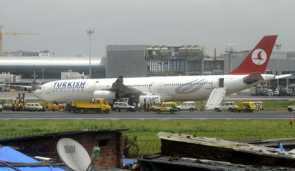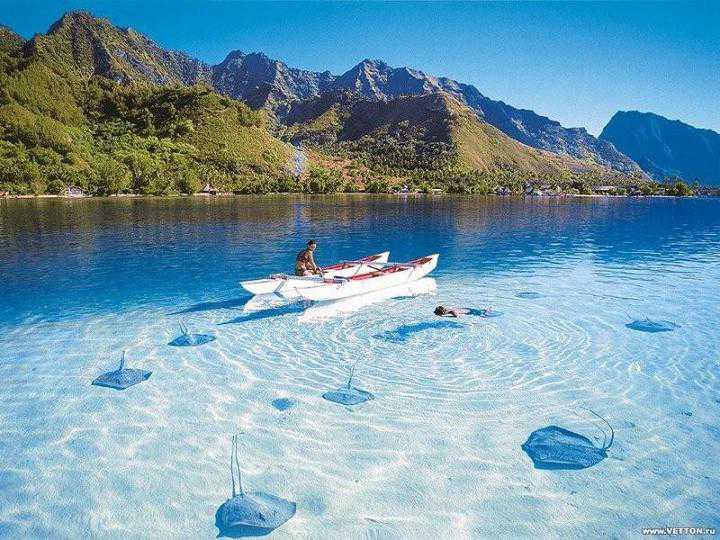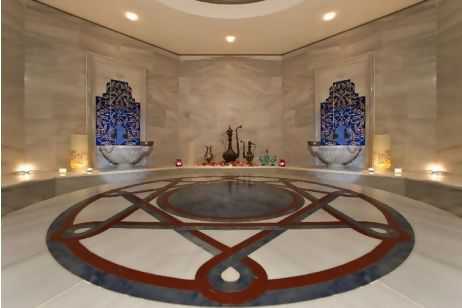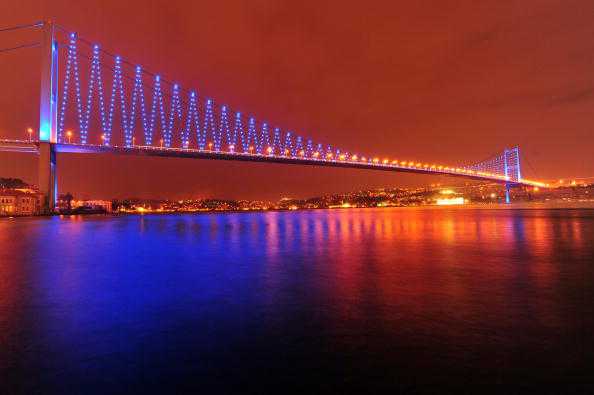Today, some 20 million heave in its narrow streets and sea passages, in ferries, in trams, in hooting yellow cabs, pouring out of modern high-rises and gathering beneath ancient buildings. A mix of Christian and Muslim, ethnically attired and mini-skirted, old-fashioned and hip, they meet in spaces where the high-tech sits alongside the primitive, where almost Biblical scenes are played out against a backdrop of glass and steel.
Outside the Grand Bazaar, hunched men with padding on their backs stand waiting to be hired like donkeys to haul merchandise through cobbled alleyways too small for trucks. On old wooden carts, farmers in turbans hawk freshly-picked cucumbers with their yellow flowers still attached. Beneath the arched, frescoed ceilings of the Egyptian Bazaar, men in maroon fezes weigh piles of spices on brass scales used by their great-grandfathers.
As the sun sets over the boats pouring in and out of Eminonu harbour, the muezzins’ calls waft in the warm air as the devout line up outside wash-houses to cleanse themselves in preparation for evening prayer.
That is not to say Istanbul is cocooned in some ancient timewarp. One of the most extraordinary things when revisiting is to see how quickly it has metamorphosed from a sleepy old worm of a city into an iridescent contemporary creature. When I hiked there in the Eighties, restaurants served only basic local dishes and five-star establishments were rare. Today there are more than 20 grand hotels, from the slick new all-suite Edition, designed by Ian Schrager, to a Kempinski housed in a former palace on the Bosphorus.
In the hip Ortakoy district, the shore is lined with clubs such as Sortie, where women in short skirts dance amid mirrored walls in the moonlight, and speedboats are poised to jet the rich home for mint tea at dawn. Beyoglu is now frequented by artists and film-makers who hang out in the hip cafes and coffee shops by day, before taking in the sunset over a cocktail at one of the sophisticated rooftop bars such as 360 or Mikla, at the Marmara Pera hotel, looking out over 14th-century minarets and 21st-century skyscrapers rising side by side.
Even in the slightly down-at-heel Cukurcuma district, little junk shops now have grand antiques emporia as neighbours, their old bronze samovars and battered signs outdazzled by window dressings of gilt, chandeliers and eye-wateringly expensive Christofle silverware. While the old heart of the city is still there, these days it bristles with ultra-modern additions: museums, nightclubs, enormous glass shopping malls, art galleries housed in old power stations, fashionable bars with views over the river.
The city’s rapid expansion is hardly surprising, given its increasing economic power. In the Nineties, foreign investment in Istanbul rarely rose above US$3 billion (£1.84 billion); by 2005 it had reached nearly US$10 billion (£6 billion), and by 2006, double that. When, as European
City of Culture in 2010, Istanbul successfully played host to dozens of world-class acts, its status in the arts and entertainment worlds was cemented as well.
In that year, when the three-day Liberatum festival brought together big names from Britain and elsewhere, the city’s range of spectacular venues was put in the spotlight. By day, composer Michael Nyman and Gore Vidal gave talks in the Istanbul Museum of Modern Art and VS Naipaul read from his books at the contemporary Sakip Sabanci Museum. In the evening, the likes of Lily Cole hosted dinners in such glamorous venues as the Topkapi Palace – and as the midnight bells struck, fashionistas, models and designers sipped mint cocktails on a sparkling new superyacht as Gore Vidal held court in the city he has written about for so long.
The scenes during Liberatum mirrored perfectly Istanbul’s successful marrying of cultures, age groups, politics and religion. Although 98 per cent of Turks are apparently Muslim, their interpretation of Islam seems fairly liberal. As my guide explained: “Turkey was made secular by Ataturk in 1924, which means people have the choice of what to worship and the manner in which they choose to do so. Turkey is not a Muslim state, officially, but a country where the majority choose to be Muslim. It’s extremely free, really.”
That is one reason why the number of British visitors to Turkey swelled to nearly three million last year, putting it on an equal footing with Spain. The other elements in the summery mix are sunshine, beaches and startlingly clear water with, for some, great architecture as an optional extra.
The remains of Istanbul’s most ancient cultures are mostly within walking distance of each other in the Old City. Here, over a day, it is possible to explore the remnants of a fourth-century hippodrome before strolling to two of the world’s most famous religious buildings: the Aya Sofya and the Blue Mosque. The following day, one might arrive at the port by boat and walk over to the Egyptian Spice Market with its foodie treats and Turkish gift shops. A few hundred yards away are the cavernous underground Roman cisterns to which water was brought hundreds of miles to supply the city, and a block or two beyond that, the Grand Bazaar, the world’s biggest, most exotic mall. A third day can be set aside for exploring the Topkapi Palace: four separate courtyards, surrounded by buildings that house intricately tiled harems, diamonds as big as hens’ eggs, elaborately jewelled headgear, silk coats embroidered with gold, and an original footprint and script belonging to the Prophet Mohammed.
To miss out on any of these would be to miss out on the story of Istanbul, from its beginnings as Constantinople, capital of the Roman Empire, to its excesses during the Byzantine period and its mystique at the time of the Ottoman emperors, when mosques began to dominate the city skyline, and harems and eunuchs became as much a part of palace life as prayer mats.
If you have time to visit just one sight in Istanbul, let it be the Aya Sofya. Once the greatest church in Eastern Christendom – and for a while the largest building on Earth, bar the Egyptian pyramids – it was the crucible of the Greek Orthodox church for 916 years, then a mosque for a further 481. In 1934, to pacify both faiths, the father of modern Turkey, Ataturk, declared the building a museum where symbols of both religions could be housed side by side beneath
a cavernous dome: gilded mosaics of the Virgin Mary flanked by enormous gold circles bearing the name of Allah, Ottoman calligraphy alongside paintings of Jesus Christ. It is both architecturally beautiful and emotionally moving: a majestic symbol of tolerance in our increasingly intolerant world.
But old monuments are not the only spaces in which to imbibe the country’s rich culture. Thanks to the wealth of some of its residents, Istanbul now boasts a number of contemporary institutions in which to learn about its art, history, jewellery and fashion. One example is the Istanbul Museum of Modern Art , with its airy white spaces, lively bookshop and cinema showing local films. Then there is Santral Istanbul, opened in 2007 on the site of the Ottoman Empire’s first power station, and now housing a modern art museum, an energy museum,
high-tech concert halls and a public library.
The third in the triptych is the Sakip Sabanci Museum, arguably the most chic cultural spot in the city. Set in an elegant classical mansion with a modern glass-fronted extension, in gardens overlooking the Bosphorus, it is laid out in a way that makes history utterly compelling. Gold jewellery 2,000 years old is artfully displayed in glass boxes with matt-black walls as a backdrop. The story of 500 years of calligraphy is told in an exhibition with easy-to-digest sections. In another part of the museum, you can sit under a dome and listen to spiritual music while watching art projected on the ceiling.
After that feast of culture, you can retreat into the museum’s ultra-modern Muzedechanga restaurant to sample Turkish cuisine with a twist: red pepper paste, roasted pumpkin, garlic and lemon spread on bread, or slow-looked lamb served in fingers of vine leaves.
Another place from which to appreciate Istanbul’s diversity – of faith, architecture, culture and landscape – is the Bosphorus. My first two nights in the city were spent at Sumahan on the Water, a 20-room boutique hotel which, as its name implies, is right on the water’s edge. It was a great choice. The Bosphorus is the heart of the city, the water passage through which supertankers sail from the Mediterranean to the East, where old wooden trawlers chug and millionaires’ pleasure boats ply up and down. Staying here, you can not only watch these vessels cruise by from your bed, but be ferried back and forth between the hotel and the city on the Sumahan’s own boat: an elegant navy-blue cruiser with polished wooden decks,
a smart naval captain and interiors of soft cream leather into which you can sink and watch the world go by.
Arriving in Istanbul after a four-hour flight from London, I feel a flit on a glamorous boat is just what is called for. As the captain pulls away and cruises up the European side of the Bosphorus, the cacophony of hooting buses fades, leaving only the splashing of water against the hull and the caw of gulls. A grand Ottoman palace comes into view, then the majestic façades of the Kempinski and Four Seasons hotels, their pools overlooking the water. A mosque appears, followed by the huge Bosphorus suspension bridge, with little ant-sized cars crawling in one of the city’s incessant traffic jams. Just over the water, on the Asian side, you finally reach the hotel and all the stresses of the busy city are left behind.
From that side of the river, you can gently immerse yourself in Turkish culture, exploring the little local shops nearby, buying strawberries from local farmers on the road, exploring the old, very Muslim, Uskudar quarter where the majority of women cover up and men gather in groups outside the mosques to observe and quietly reflect on life, drink mint tea and talk about politics. From there, it is a 10-minute boat-hop across to the pretty, upmarket areas of Ortakoy and Bebek, where on Sundays the chic coffee shops and restaurants are full of sophisticates meeting for brunch and browsing the expensive boutiques and arty little emporia.
Having explored these areas, you might want to move to a hotel in the centre of Istanbul, to take in the main sights of the Old City, stroll the narrow alleyways of Beyoglu, stop off at a few of its atmospheric bars, and shop for antiques in the quaint little hilly Cukurcuma district. And then party like the Turks do – all night long.
Istanbul basics
When to go
Autumn is pleasantly warm, as is spring, but avoid high summer (July and August) when it is 30C during the day and unpleasantly humid.
Where to stay
Sumahan on the Water (00 90 216 422 8000, sumahan.com), on the quieter, more traditional side, has extra-helpful managers and luxurious extras: a white-marble mini-hammam, bathroom unguents made from local ingredients, a speedboat for transfers, and waterside tables overlooking the Bosphorus (right); doubles from £170.
Pera Palace Hotel (00 90 212 377 4000, perapalace.com), with its grand façade (inset, below) is for traditionalists who want to be near the sights. Treats include old-fashioned English tea at 4pm, a restaurant serving some of the best food in Istanbul, and an Agatha Christie room in which the author wrote Murder on the Orient Express; doubles from £165.
Other five-stars include the W (wistanbul.com.tr); the new all-suite Edition (editionhotels.com), with a huge Espa spa and Cipriani restaurant; the two Four Seasons (fourseasons.com); and the Kempinski (kempinski.com), near the Old City.
What to do
Plan your activities in specific areas: one day in the Old City, taking in the mosques, Roman cisterns and Egyptian market; another at the Topkapi Palace (go early before the crowds) and Grand Bazaar; a third walking the funky antique area around Cukurcuma and taking a taxi to the Sakip Sabanci Museum (muze.sabanciuniv.edu). The boats that plough the Bosphorus are crowded but worth it. For spectacular aerial views, have a drink at a rooftop bar: the best
are 360 (yourworldis360.com) and Mikla (miklarestaurant.com), both in Beyoglu district.
Where to shop
For Turkish delight, stop off at Haci Bekir (hacibekir.com.tr), confectioner since 1777; and for fine calligraphy painted on to leaves, try Nick’s (nickscalligraphy.com). The best place for Frette-like cotton sheets and towels is Abdulla (abdulla.com), while for contemporary Turkish gifts and fashion head to Cocoon (cocoonchic.com) and for antiques, browse at Sofa (kashifsofa.com).
How to do it
The city holds festivals and music events (see gototurkey.co.uk for details), including Liberatum and the annual Istanbul Jazz Festival (caz.iksv.org/en). Take good walking shoes, as the city is hilly, with some old and quite dilapidated roads. Turkey specialist Exclusive Escapes (020 8605 3500, exclusiveescapes.co.uk) is offering four nights at Sumahan on the Water from £810 per person, b&b. The price includes return flights from London with Turkish Airlines, transfers and the services of a private city guide for half a day.






